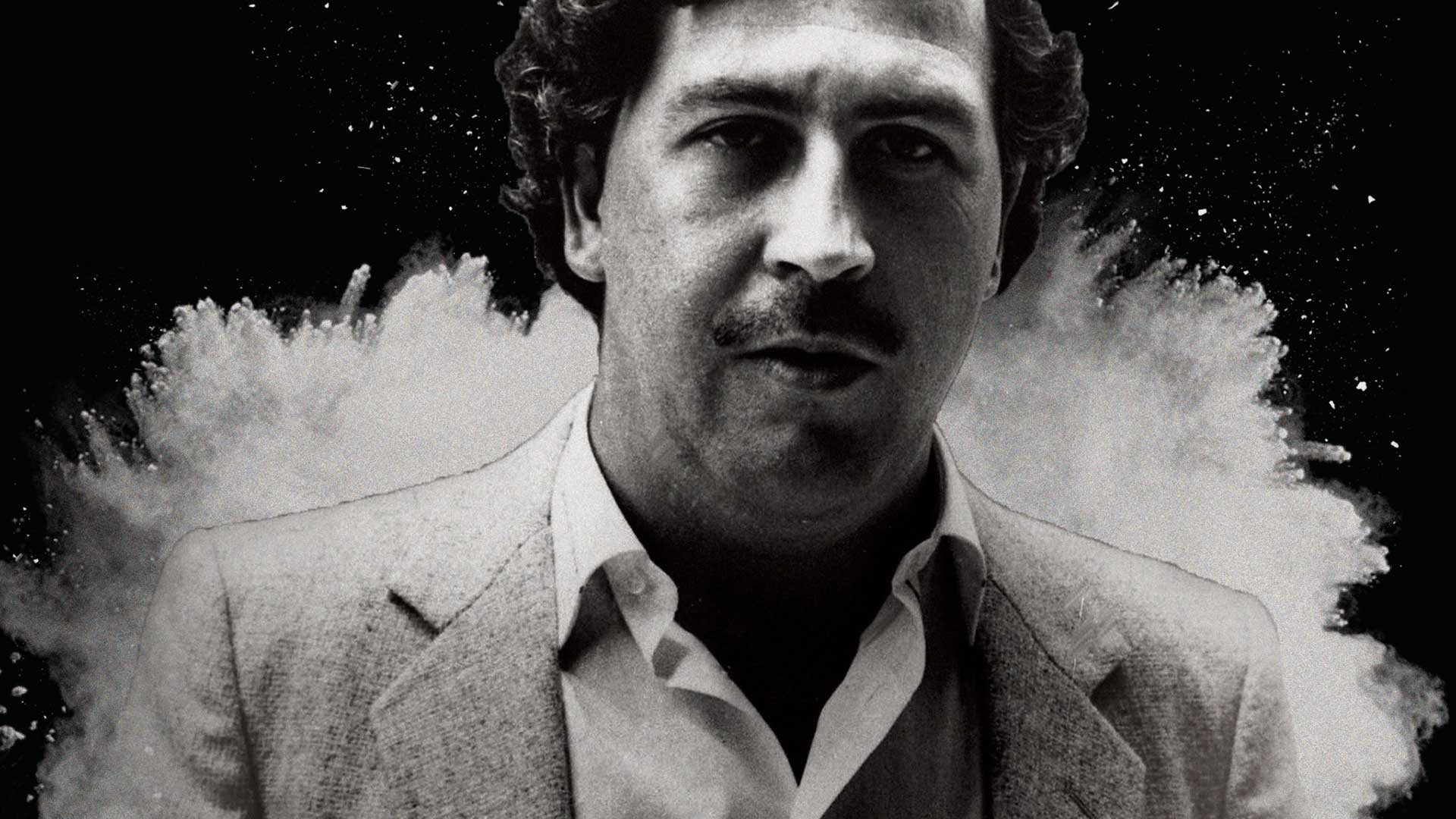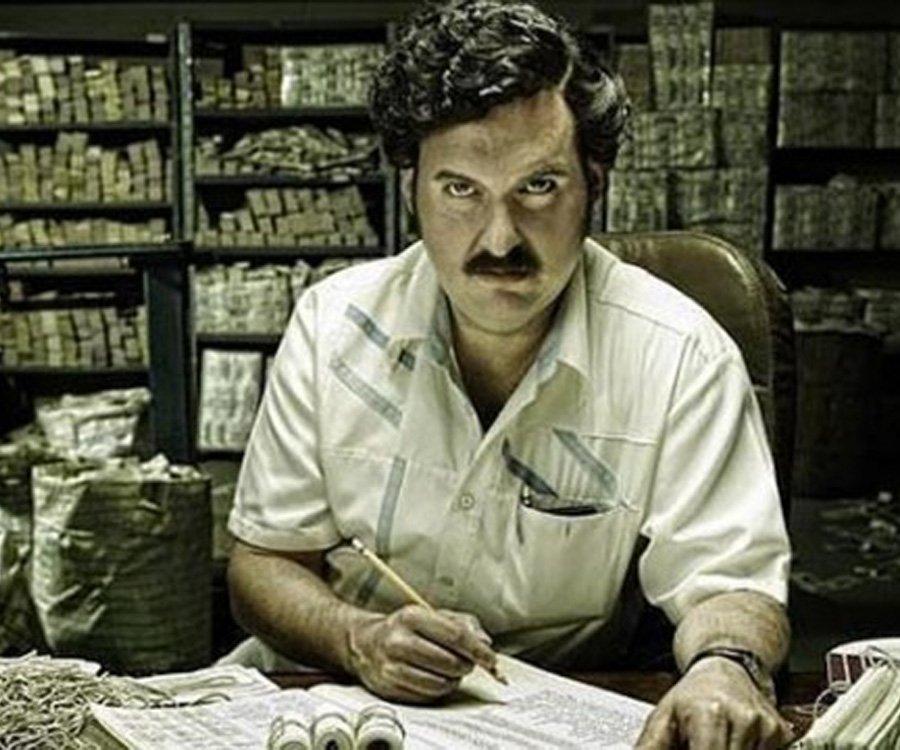Pablo Escobar: The Untold Story Of Power, Wealth, And Legacy
Pablo Escobar is one of the most infamous figures in modern history, a name synonymous with the rise and fall of Colombia's drug empire. Known as the "King of Cocaine," his story continues to captivate audiences worldwide. This article delves deep into the life, rise, and fall of Pablo Escobar, exploring the man behind the myth and the lasting impact of his actions.
Pablo Escobar's journey from a humble background to becoming the most powerful drug lord in history is a tale of ambition, power, and ultimately, destruction. His influence extended beyond the drug trade, shaping Colombia's political landscape and leaving a lasting legacy that continues to resonate today.
In this article, we will explore the life of Pablo Escobar, including his rise to power, the infamous Medellín Cartel, and the consequences of his actions. By understanding the complexities of his life, we can better grasp the far-reaching effects of his decisions and the lessons they offer for future generations.
Read also:Al Gore And Elizabeth Keadle A Comprehensive Look At Their Impact And Influence
Table of Contents
- Biography of Pablo Escobar
- Early Life and Background
- Rise to Power
- The Medellín Cartel
- Building a Criminal Empire
- Political Influence and Corruption
- The Downfall of Pablo Escobar
- Legacy of Pablo Escobar
- Lessons Learned from Pablo Escobar's Life
- Conclusion: The Enduring Impact of Pablo Escobar
Biography of Pablo Escobar
Pablo Emilio Escobar Gaviria was born on December 1, 1949, in Rionegro, Antioquia, Colombia. His life was marked by controversy and intrigue, making him one of the most notorious figures of the 20th century. Below is a detailed overview of his personal life and career.
Pablo Escobar's Personal Details
| Full Name | Pablo Emilio Escobar Gaviria |
|---|---|
| Date of Birth | December 1, 1949 |
| Place of Birth | Rionegro, Antioquia, Colombia |
| Death | December 2, 1993, Medellín, Colombia |
| Family | Married to María Victoria Henao Vellejo; two children |
Early Life and Background
Pablo Escobar's early life was shaped by poverty and hardship. Growing up in a modest family, he faced financial struggles that would later drive his ambitions. Escobar's early experiences in petty crime laid the foundation for his future empire.
According to historical records, Escobar began his criminal career as a teenager, engaging in car theft and smuggling. These activities provided him with the skills and connections necessary to ascend the ranks of organized crime.
By the 1970s, Escobar had transitioned from small-time crime to the lucrative world of drug trafficking. His early success in this field set the stage for his rise to become one of the most powerful drug lords in history.
Rise to Power
Pablo Escobar's rise to power was marked by strategic alliances and ruthless tactics. He quickly established himself as a dominant force in the cocaine trade, leveraging his charisma and intelligence to build a formidable network.
Key Strategies for Success
- Forming alliances with other drug traffickers to consolidate power
- Utilizing violence and intimidation to eliminate rivals
- Investing in community projects to gain public support
Escobar's ability to navigate the complex world of organized crime while maintaining a semblance of legitimacy made him a formidable opponent for law enforcement agencies.
Read also:Danielle Rose Russell Net Worth 2024 A Deep Dive Into Her Career And Achievements
The Medellín Cartel
The Medellín Cartel, led by Pablo Escobar, became the largest cocaine trafficking organization in the world during the 1980s. The cartel's operations extended across continents, supplying vast quantities of cocaine to the United States and Europe.
Structure of the Cartel
- Divided into specialized units for production, transportation, and distribution
- Employed thousands of workers, including chemists, pilots, and enforcers
- Utilized advanced technology and infrastructure to evade detection
At its peak, the Medellín Cartel controlled an estimated 80% of the global cocaine market, generating billions of dollars in revenue annually.
Building a Criminal Empire
Pablo Escobar's criminal empire was built on a foundation of innovation and adaptability. He was one of the first drug lords to use airplanes and submarines for transporting drugs, revolutionizing the industry.
Escobar's wealth allowed him to indulge in extravagant lifestyles, purchasing lavish properties and financing elaborate parties. His estate, Hacienda Nápoles, became a symbol of his power and excess.
Political Influence and Corruption
Pablo Escobar's influence extended into the political arena, where he used bribery and intimidation to manipulate government officials. His infamous slogan, "plata o plomo" (silver or lead), underscored his willingness to use both money and violence to achieve his goals.
Impact on Colombian Politics
- Corruption of law enforcement and judicial systems
- Assassination of political opponents and public figures
- Attempts to run for public office to gain legal immunity
Escobar's involvement in politics further complicated efforts to dismantle his empire, creating a climate of fear and instability in Colombia.
The Downfall of Pablo Escobar
Pablo Escobar's downfall was the result of a combination of factors, including increased pressure from law enforcement and internal divisions within the cartel. The Colombian government, supported by international allies, launched a relentless campaign to capture Escobar.
On December 2, 1993, Escobar was killed in a shootout with Colombian police in Medellín. His death marked the end of an era and the beginning of a new chapter in Colombia's fight against drug trafficking.
Legacy of Pablo Escobar
Pablo Escobar's legacy is complex and multifaceted. While he is remembered as a ruthless criminal, his actions also had lasting effects on Colombia's social and political landscape. His rise and fall serve as a cautionary tale about the dangers of unchecked power and greed.
Today, Escobar's story continues to captivate audiences through books, documentaries, and television series. His life serves as a reminder of the consequences of crime and corruption on society.
Lessons Learned from Pablo Escobar's Life
The story of Pablo Escobar offers valuable insights into the nature of power, corruption, and the fight against organized crime. Key lessons include:
- The importance of international cooperation in combating transnational crime
- The need for strong legal frameworks to prevent corruption
- The role of education and social programs in addressing the root causes of crime
By learning from Escobar's mistakes, societies can work towards creating safer and more just communities.
Conclusion: The Enduring Impact of Pablo Escobar
Pablo Escobar's life and career remain a subject of fascination and study. His rise to power and subsequent downfall highlight the dangers of unchecked ambition and the importance of accountability in all sectors of society.
We invite readers to reflect on the lessons of Escobar's story and consider how they can contribute to building a better future. Share your thoughts in the comments below or explore other articles on our site for more insights into history's most intriguing figures.
For further reading, consult reputable sources such as the United Nations Office on Drugs and Crime (UNODC) and academic publications on organized crime. Understanding the complexities of Escobar's life can help us address the challenges of today's world.

